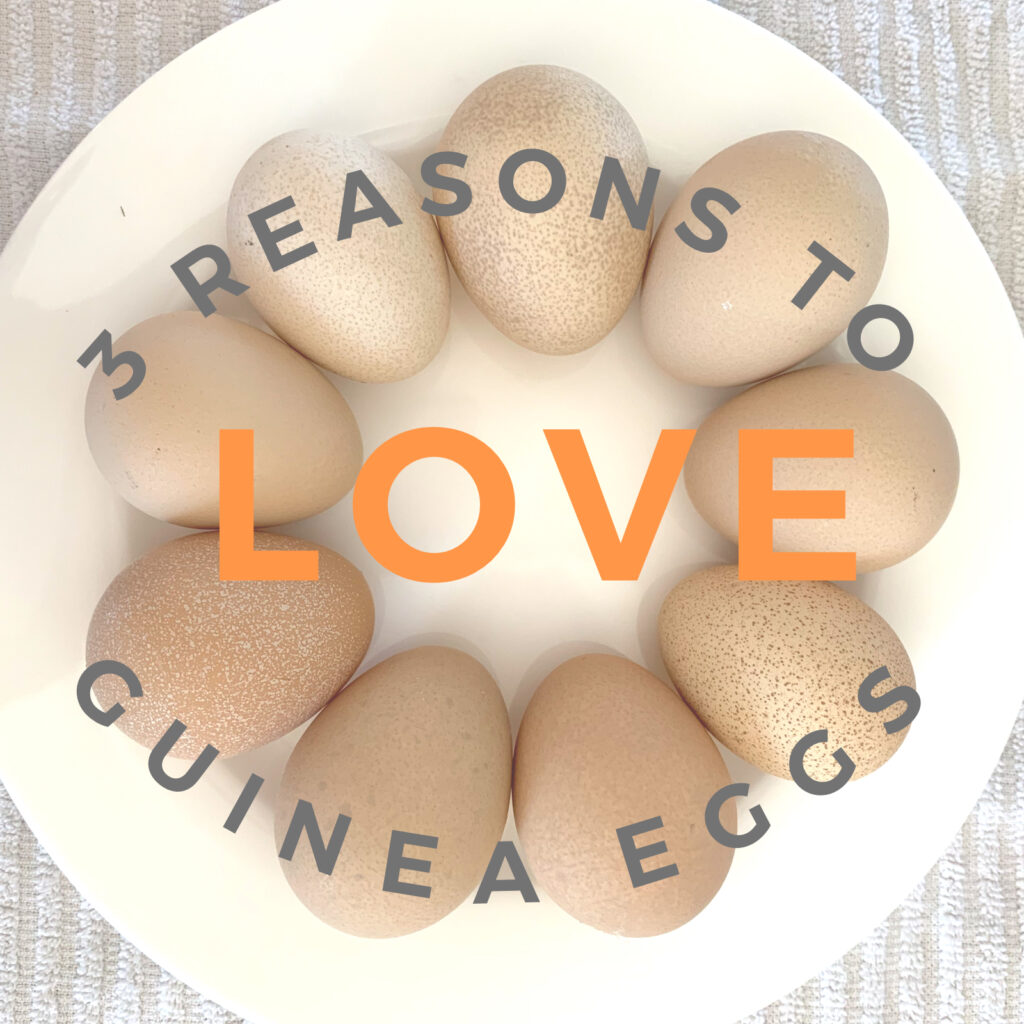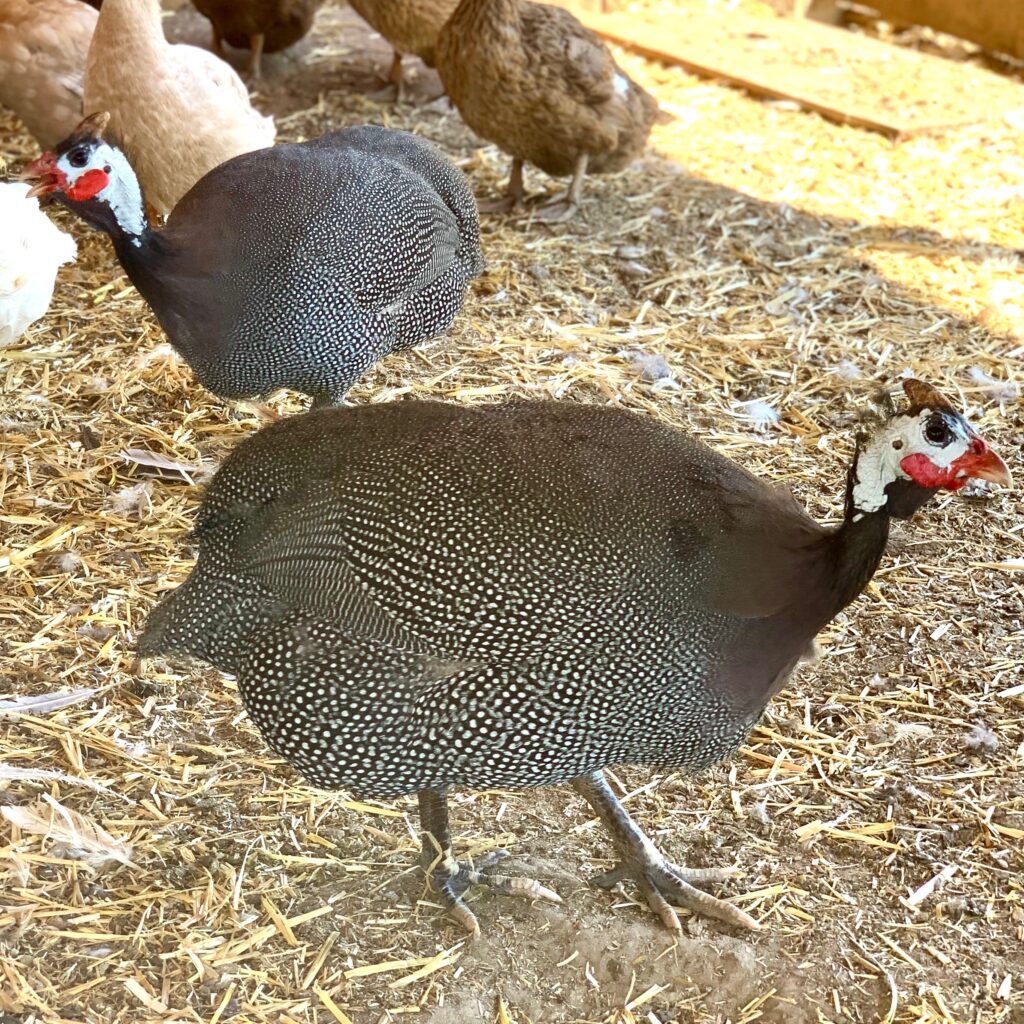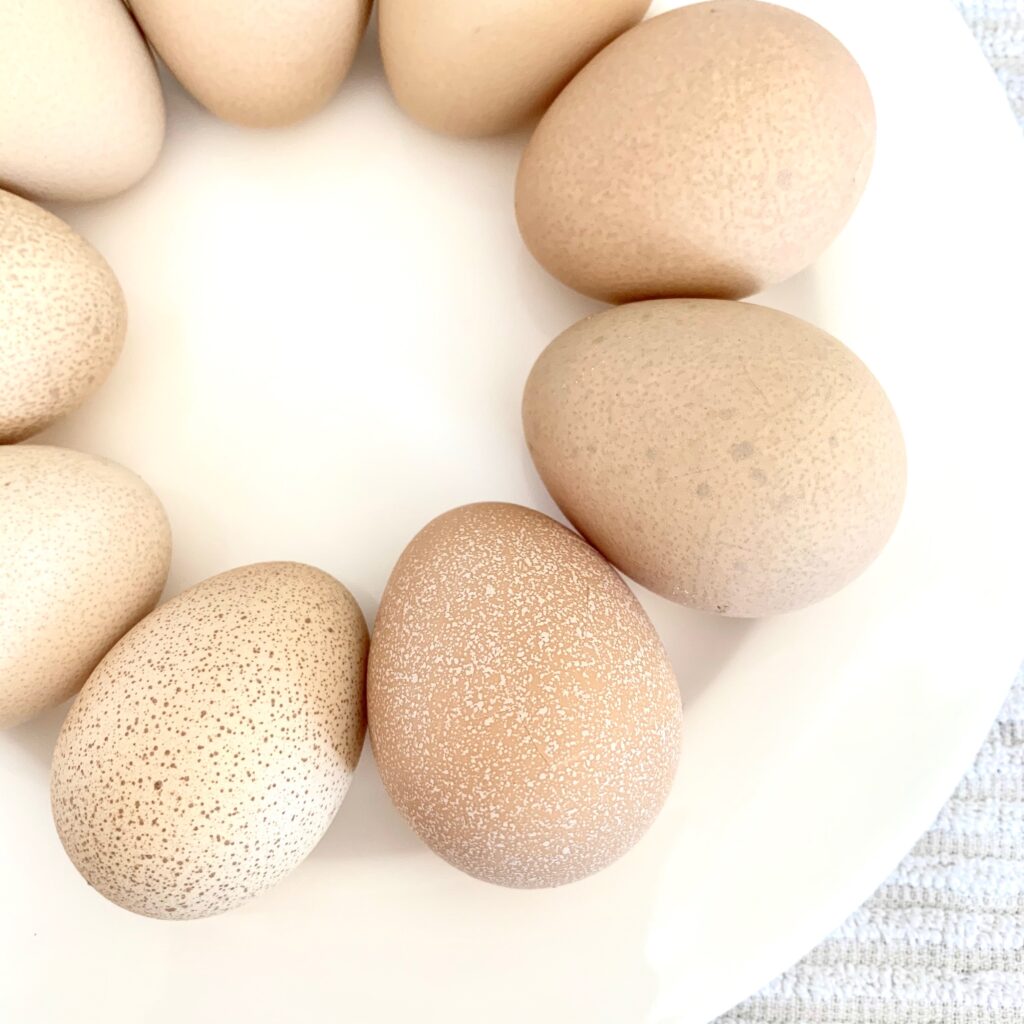
Many people haven’t tried eggs from Guinea fowl, but they are really special. A few weeks ago, I went on one of my last lunches before starting the Homegrown Year (don’t know what it is? Check it out.) I brought my friend a “farm bag” of veggies, cheeses, and eggs. Particularly for my more gourmet friends, I love to bring them special treats. When he opened up the egg carton I pointed out the eggs from our Guinea Fowl. He was excited to try them. If you can get some, you should too.
We originally got Guineas to act as flock protectors and watchdogs. They’re great at both jobs. We keep six Guineas in our flock. They mostly hang out together. Guineas are bolder than the chickens or ducks. They spend the day walking the fence line, keeping guard, or out in the pasture walking a militaristic line, hunting bugs, snakes, and mice.

Guineas are the most superior hunters in our flock by a large margin. Because we acquired Guineas as protectors, and not for eggs, I was surprised their eggs turned out to be my favorite of all. Unlike our chickens, our Guineas lay late spring to fall, so I only get them part of the year. When we have their eggs it’s a treat.
Superior taste
Some say that Guinea eggs taste exactly the same as chicken eggs, but I disagree. They have a higher yolk to white ratio and I think they’re creamier and richer than their chicken counterparts. That said, there is only a subtle difference so they can be cooked just like chicken eggs.
Since Guineas tend to be such good hunters, they get a more varied diet than the other birds in the flock, and what a bird eats directly affects the flavor of her eggs.
There are great applications for every kind of egg on the farm. Duck eggs are great for baking and meringues as their whites retain air better. Chicken eggs are great for scrambling and also just to have consistent eggs throughout the year. Quail eggs are fun little nuggets, but the work/payoff ratio is very high. Guinea eggs, however, are what I save for dishes that really feature the egg flavor, and especially the yolk – poached, sunny-side up, and hard-boiled.
Harder and thicker shells
Not only do Guinea eggs have a superior taste to their chicken counterparts, but their shells are also much thicker and stronger. Having armored eggs is useful at our home, particularly when pulling them from the nest with a three-year-old “helper.” We lose fewer Guinea eggs to breakage than others. Because the shells are thicker and stronger, I find they are easier to peel for hardboiled eggs as the pieces come off in larger chunks.
If you’re using Guinea eggs in your own kitchen, make sure to really whack the shells to break them. They are STRONG.

Perfect size
Guinea eggs are just a bit smaller than chicken eggs. Their size is ideal as they are perfectly bite-sized. For recipes, the general rule is that you replace each chicken egg with two Guinea eggs.
They’re great for a quick hardboiled egg snack. I have one lady who buys eggs from me and prefers Guinea eggs because her husband works construction and can just eat a single-bite egg straight from the bag without taking his gloves off.
I love to pickle Guinea eggs. They are an ideal shot of protein and salt to the system when you’re on the go. The higher yolk percentage ensures they’re delicious and flavorful every time. It’s fun to make high-class dive-bar food.
If you ever get the chance, try some Guinea eggs. You’ll be a convert, too!
I know it sounds dumb, but I almost want you to do a post just like this, but for farm fresh eggs…. I’ve been considering getting fresh eggs from someone to see what the difference is from the store, which I imagine is just huge, and I can’t tell you how much I think about it.
I also am considering that once I try it, i’ll have to either get my own chickens or figure out how to supply fresh eggs, because I’m sure store eggs are just not the same.